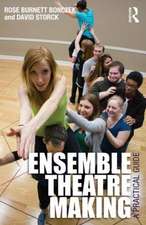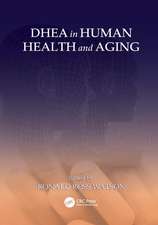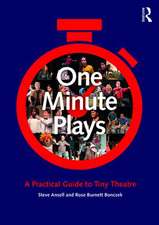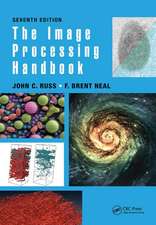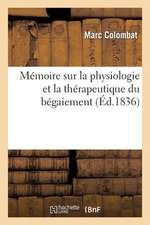Turn That Thing Off!: Collaboration and Technology in 21st-Century Actor Training
Autor Rose Burnett Bonczek, Roger Manix, David Storcken Limba Engleză Hardback – 20 mar 2018
The daily work of a theater practitioner thrives on an ability to connect, empathize, and participate with other artists. This is true at every level, from performing arts students to established professionals. As smartphones, social media, and other forms of digital connectedness become more and more embedded in daily life, they can inhibit these collaborative, creative skills. Turn That Thing Off! Collaboration and Technology in 21st-Century Actor Training explores ways to foster these essential abilities, paving the way for emerging performers to be more present, available, and generous in their work.
| Toate formatele și edițiile | Preț | Express |
|---|---|---|
| Paperback (1) | 345.60 lei 6-8 săpt. | |
| Taylor & Francis – 20 mar 2018 | 345.60 lei 6-8 săpt. | |
| Hardback (1) | 1108.37 lei 6-8 săpt. | |
| Taylor & Francis – 20 mar 2018 | 1108.37 lei 6-8 săpt. |
Preț: 1108.37 lei
Preț vechi: 1351.68 lei
-18% Nou
Puncte Express: 1663
Preț estimativ în valută:
212.08€ • 221.43$ • 175.53£
212.08€ • 221.43$ • 175.53£
Carte tipărită la comandă
Livrare economică 05-19 aprilie
Preluare comenzi: 021 569.72.76
Specificații
ISBN-13: 9781138677128
ISBN-10: 1138677124
Pagini: 194
Dimensiuni: 156 x 234 x 13 mm
Greutate: 0.43 kg
Ediția:1
Editura: Taylor & Francis
Colecția Routledge
Locul publicării:Oxford, United Kingdom
ISBN-10: 1138677124
Pagini: 194
Dimensiuni: 156 x 234 x 13 mm
Greutate: 0.43 kg
Ediția:1
Editura: Taylor & Francis
Colecția Routledge
Locul publicării:Oxford, United Kingdom
Public țintă
Postgraduate, Professional, and Professional Practice & DevelopmentCuprins
Introduction
Chapter 1: The Collaborative Gene
Chapter 2: The growing isolation of the Collaborative Gene
Chapter 3: Impact of technology on collaborative behaviors
Chapter 4: Why are acting students choosing to isolate instead of collaborate?
Chapter 5: Rekindling the Collaborative Gene
Chapter 6: We are the people to solve this problem
Appendices
Chapter 1: The Collaborative Gene
Chapter 2: The growing isolation of the Collaborative Gene
Chapter 3: Impact of technology on collaborative behaviors
Chapter 4: Why are acting students choosing to isolate instead of collaborate?
Chapter 5: Rekindling the Collaborative Gene
Chapter 6: We are the people to solve this problem
Appendices
Notă biografică
Rose Burnett Bonczek is Director of the BFA Acting Program and Professor of Theater at Brooklyn College, CUNY, USA.
Roger Manix is an adjunct lecturer in the BFA Acting Program at Brooklyn College, CUNY, USA, and at Parsons School of Design at The New School, New York, USA. He is the owner of Brooklyn Training Ground, an acting studio in New York.
David Storck is Professor of Performing Arts at the Savannah College of Art and Design in Savannah, Georgia, USA.
Roger Manix is an adjunct lecturer in the BFA Acting Program at Brooklyn College, CUNY, USA, and at Parsons School of Design at The New School, New York, USA. He is the owner of Brooklyn Training Ground, an acting studio in New York.
David Storck is Professor of Performing Arts at the Savannah College of Art and Design in Savannah, Georgia, USA.
Descriere
As personal technology becomes ever-present in the classroom and rehearsal studio, its use and ubiquity is affecting the collaborative behaviors that should underpin actor training. How is the collaborative impulse being distracted, and what kind of solutions can re-establish its connections? The daily work of theatre practitioner thrives on an ability to connect, empathise and participate with other artists. This is true at every level from performing arts students to established professionals. As smartphones, social media and other forms of digital connectedness become more and more embedded in daily life, they can suppress these collaborative, creative skills. Turn That Thing Off! Collaboration and Technology in 21st-Century Actor Training explores ways to foster these essential abilities, paving the way for emerging performers to be more present, available, and generous in their work.

